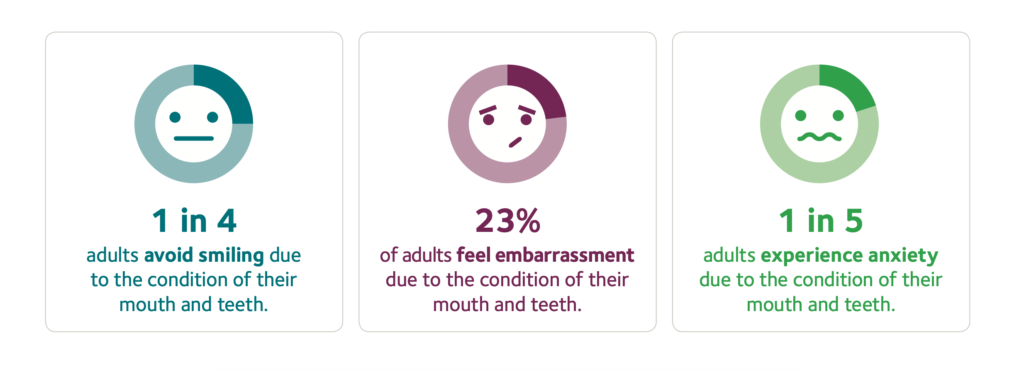
According to the CDC, more than 40% of adults have felt some kind of mouth pain in the last year and roughly 80% will have at least one cavity by the time they are 34 years old. While in some cases unavoidable, most of the common dental health issues are preventable.
When it comes to your oral health, your hygiene is of utmost importance. Being consistent with your at home care and scheduling regular dental checkups are critical in preventing major dental issues. Still, there are other factors that can impact your dental health such as genetics, medications, diet and other factors.
Here’s a list of six of the most common mouth and dental health issues we see.
Gum Disease
Also known as periodontal disease, gum disease is an infection that damages gums and can destroy your jaw bone. Those with gum disease likely don’t floss enough or at all, causing buildup of plaque-causing bacteria. Periodontal disease can be treated by deep teeth cleanings performed by your dentist.
Tooth Decay
Failure to brush after large amounts of sugar or acidic foods and beverages can cause tooth decay and cavities. Cavities are treated by drilling away bacteria from the tooth and filling it with a composite material that matches the tooth’s appearance.
Oral Cancer
Usually presenting itself as a swollen or tingly red or white sore, oral cancer can target multiple places in the mouth, including your tongue, throat, lips or cheeks. Oral cancer is treated with chemotherapy or radiation therapy.
Cleft Lip or Palate
Not a disease, but a developmental issue, cleft lip occurs when tissues in the upper lip don’t form completely at 6-9 weeks’ gestation. Surgery is performed within 18 months of birth to prevent future health issues. If it’s a severe case, a child may need to do speech therapy as well.
Oral Thrush
A fungal infection that occurs in infants and those with reduced immunity, oral thrush presents itself as milky white lesions on the tongue and cheeks. A dentist treats oral thrush with antibiotics to kill the fungal spores, but oral thrush can be prevented with routine brushing and flossing.
Bad Breath
A side effect of gingivitis or periodontitis, but can also be caused by smoking, bad dental hygiene and respiratory tract infections, bad breath can be treated by a strict dental hygiene routine and going to the dentist regularly.
The most important way to manage your dental health is to prevent issues before they happen. This is a combination of diet, oral hygiene and regular visits to a dentist. If you have any questions, please don’t hesitate to contact us; we’re here to help.

 Request an Appointment
Request an Appointment


